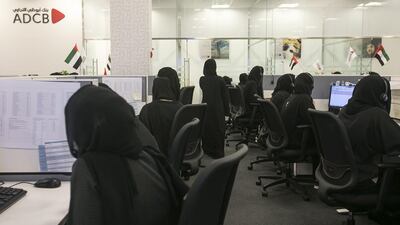When Steve Jobs was the chief executive of Apple, he was known for his black turtleneck, jeans and trainers during his public key notes. Mark Zuckerberg wears a grey T-shirt and jeans to work every day and one of America’s greatest inventors, Dean Kamen, who invented the Segway, always wears a denim shirt, jeans and work boots. Here in the UAE, we have the kandura and the abaya, our national attire that we wear proudly. We all wear the same thing every day.
National dress represents our personalities, our culture, or our outlook on life and what is important to us. For many expats I have met in the UAE, the Emirati attire is one of the aspects of our society that impresses them most. It demonstrates how the UAE is able to embrace the future while still holding on to our culture, how we can welcome globalisation while still keeping what is local relevant, and how, despite international demographics in corporate work settings, the national dress is still promoted and welcomed.
I first became interested in the value the UAE’s national dress gives us beyond maintaining our culture when a western colleague wearing a suit said how much he envied our clothes. When I asked him why, he said getting ready for work in the morning was always a hassle – he had to pick what suit to wear, what shirt went well with the suit, what tie went well with the shirt, make sure that his belt and shoes matched, that his socks were appropriate, then pick a set of cufflinks to top everything off. He said something that stuck out – that the process could be “exhausting”.
For me and my Emirati male compatriots, we never even think about what we are going to wear for work, or most places for that matter: a white kandura, a white gutra, a pair of slippers, and we are good to go. For my female counterparts, the process might be a bit more complicated, given the clothes or outfit they wear under the abaya. However, the black shayla and abaya are seen as a way to keep things simple.
So what value does our Emirati dress give us? The ability to make better decisions – stay with me for a minute. Research shows that the average person makes 35,000 conscious decisions a day (200 decisions on food alone), and as we grow in our personal and professional lives the decisions increase or become more important, which can lead to an issue called “decision fatigue”.
Decision fatigue is when someone makes poorer decisions as the day goes on because of a long session of making decisions. The more decisions someone has to make the more likely the last decision being made will be worse than the first. This is the reason that some of the most powerful people in the world ensure their decision-making power is reserved strictly for the most important matters.
American president Barack Obama always wears grey or blue, except for that time he made national headlines for wearing a tan suit. He has been quoted as saying that the reason he only wears those two colours is to do with decision-making. He said: “I don’t want to make decisions about what I’m eating or wearing, because I have too many other decisions to make. You need to focus your decision-making energy. You need to routinise yourself. You can’t be going through the day distracted by trivia.”
Like our health, just as I have my seven kanduras in my wardrobe ready for the week ahead, I am trying to get in shape using a similar technique. I prepare a menu for the week ahead so I don’t have to think about what my next meal will be – that is already 200 fewer decisions I have to make for the day. With less trivial decisions to make we can focus on decisions that will help us grow more towards the life we want and closer to the people we love. The decisions that count.
Khalid Al Ameri is an Emirati columnist and social commentator. He lives in Abu Dhabi with his wife and two sons.
If you have a good story to tell or an interesting issue to debate, contact Ashley Lane on alane@thenational.ae.

